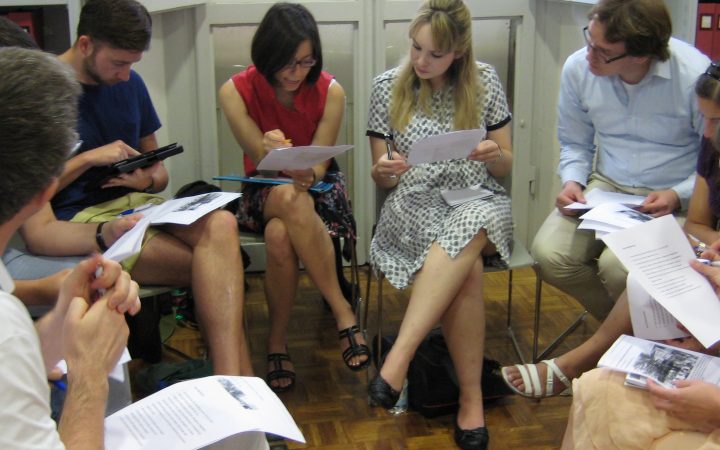
Although they have been organised to suit self-learners as well, the PARTHENOS Project training materials are primarily intended as ‘train-the-trainers’ support materials. Although research infrastructures and projects are becoming more and more of a destination for DH graduates, their operations are often at one remove from the academic units providing their training. The materials on this web site are intended to assist in bridging that gap, overcoming the general inclination within infrastructure projects to provide only training on tools, rather than finding effective ways to transfer a greater bulk of our experiential knowledge.
Level of the Materials
The materials on this site generally map to one of three learning levels:
- Beginner Level (eg. Introduction to Research Infrastructures) assumes only a moderate level of experience with digital humanities, and none with research infrastructures. Units, videos and lectures are all kept to short, manageable chunks on topics that may be of general interest, but which are presented with an infrastructural twist.
- Intermediate Level (eg. Management Challenges in Research Infrastructures) approaches some of the major challenges in building and maintaining research infrastructures. These materials are somewhat more dense, and benefit from a more comprehensive grounding in digital humanities and the management of research projects.
- Advanced Level (eg. Collaborations of Research Infrastructures) presents some of the exciting new research directions coming out of the PARTHENOS Cluster. These modules approach some of the theoretical issues that shape the design, delivery and indeed the success of research infrastructure developments, challenging us to think about how we develop and support humanities at scale in the interaction with technology.
Context for the Materials
The PARTHENOS Project is actually a cluster of projects, comprising 7 main initiatives, including 2 major European Research Infrastructure Consortia (ERICs). As such, the represent a broad perspective, but by no means an all-encompassing one. These projects tend to be widely distributed and have a strong element of data integration as a part of infrastructure development. This is not to say that the perspectives portrayed here are not applicable to other research infrastructure contexts, such as research centres or digital lib
raries: indeed we hope they will be, and we will seek to expand our presentation and examples over time. But it is useful in choosing what materials to reuse and how to contextualise them for students to know where and how they were developed, and what experiences they reflect.
Re-use of the Materials
These materials are intended for reuse, so please feel free to incorporate them in to your courses and syllabi, or direct your students toward them for further learning. Please apply a CC-BY license when you do reuse them, crediting the PARTHENOS Project and the specific lecturer by name (if a video or slide deck).
As the bank of materials grows over the period of the PARTHENOS Project (up to project end in 2019), we will use this page to provide direct links to the various presentations, videos, flyers and worksheets presented on the site. We will also include model curricula, showing how some or all of the materials have been deployed in real educational settings.

